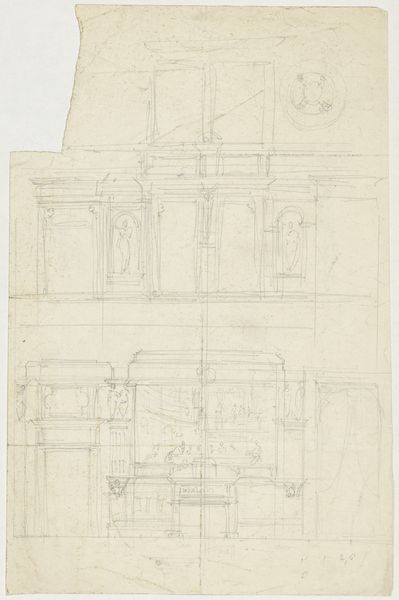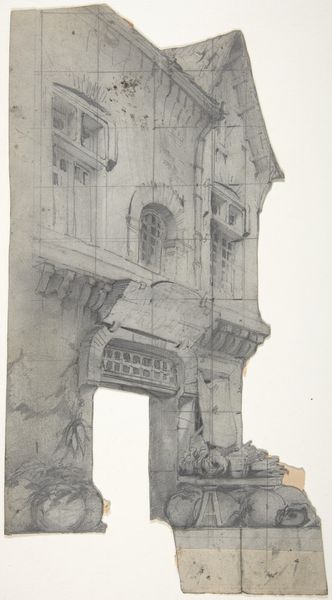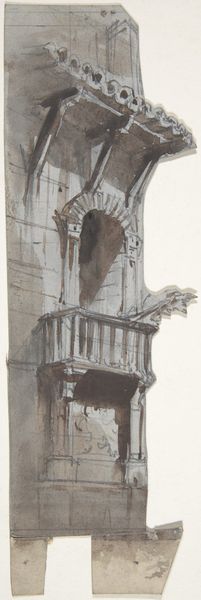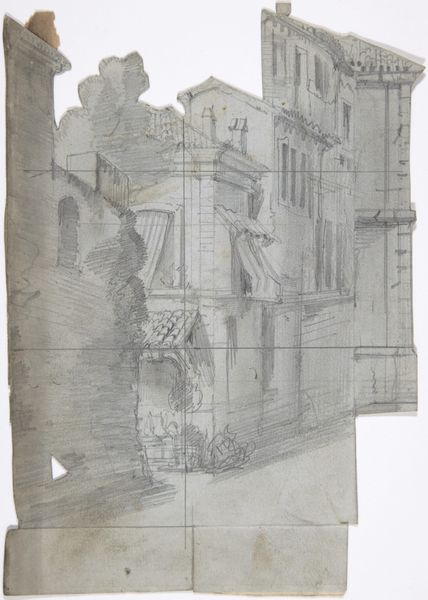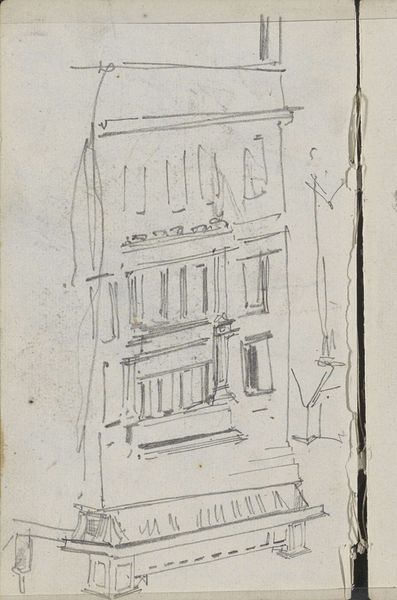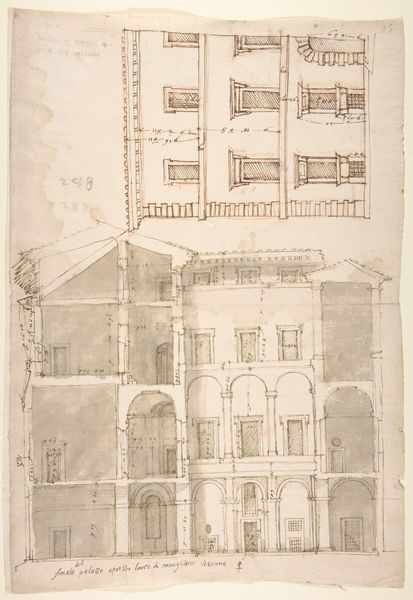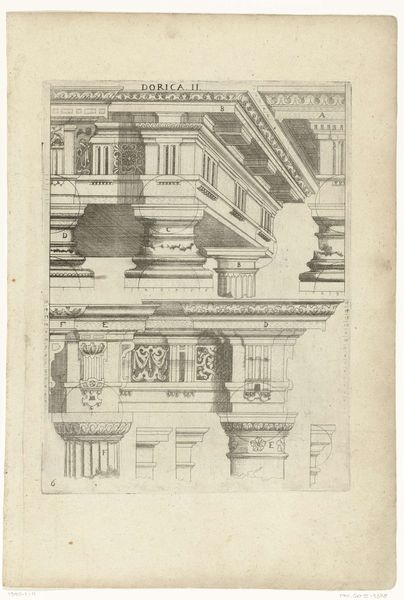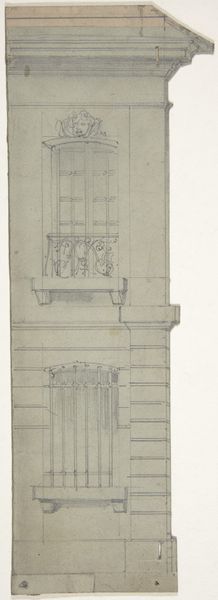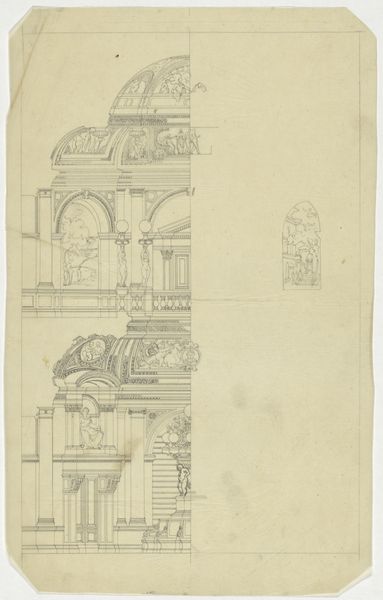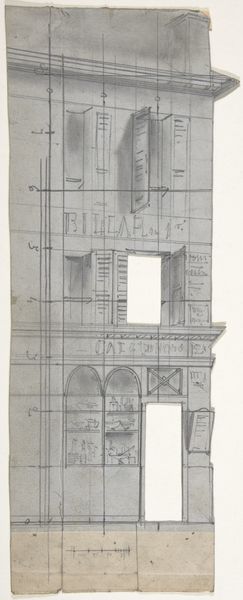
Design for a Stage Set at the Opéra, Paris 1830 - 1890
0:00
0:00
drawing, print, paper, pencil
#
drawing
# print
#
paper
#
pencil
#
cityscape
#
academic-art
Dimensions: sheet: 9 3/16 x 3 3/4 in. (23.4 x 9.6 cm)
Copyright: Public Domain
Editor: Here we have Eugène Cicéri's "Design for a Stage Set at the Opéra, Paris," created sometime between 1830 and 1890, a pencil and gray wash drawing on paper. It feels incomplete, like a fragment. What jumps out at you about it? Curator: I find it fascinating to consider the labor involved. Think of the artisanal skill required to create a stage set drawing with such detail! What kind of social class would typically be commissioned to work on operatic stage design, and how would their economic situation affect their access to materials, training, and patronage? Editor: That's interesting. I was just thinking about the final *illusion* on stage. Curator: But even that "illusion" is constructed, right? We can also discuss materiality here. It is interesting that Cicéri employs paper and pencil – relatively accessible materials, particularly when compared to painting, traditionally considered high art, in academic art, and, therefore, fine for design drawings? It opens up considerations of the division of artistic labor. Do we know where this drawing would have been physically created? Was it an opulent studio, or somewhere more modest? Editor: I'm not sure about his workspace. Does the architectural style, then, tell us anything about production or the intended audience's consumer habits? Curator: Precisely! The stage set probably depicted architecture that alluded to wealth and aspiration, even luxury! Who was the opera meant for, and what sort of fantasies were being sold? Editor: So, instead of seeing a beautiful building, we are seeing consumption and social class depicted, or rather constructed, with readily available materials like pencil and paper. Curator: Exactly. Considering the piece from that perspective reveals that its materials and mode of production are inextricable from the opera's ultimate appeal as both entertainment and spectacle. Editor: Okay, now I have something different to consider about stage design; it's more than illusion. Curator: Agreed, art is as much a product of society, class and economics.
Comments
No comments
Be the first to comment and join the conversation on the ultimate creative platform.
